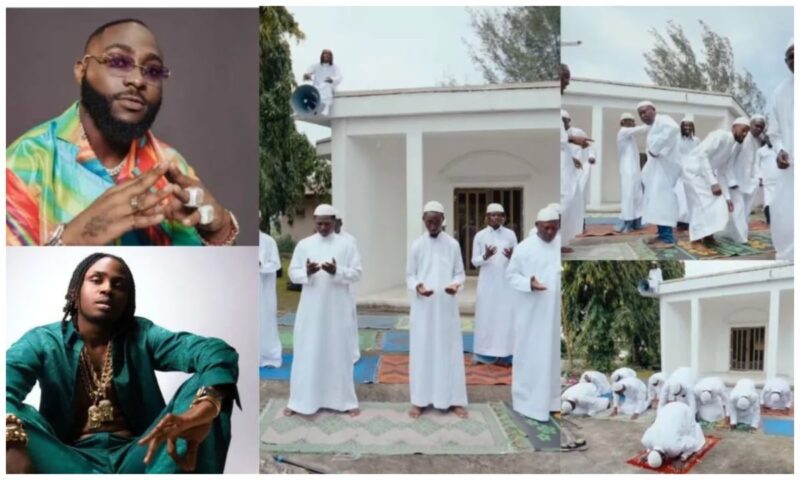National Issues
Uniting Nigerians: Respecting Artistic Freedom While Upholding Religious Sensitivity -By Shalom Kasim
The media and entertainment industry also play a crucial role in shaping public perceptions. Responsible media reporting should aim to present a balanced perspective, recognizing both the right to artistic freedom and the importance of respecting religious sensitivities. This balanced approach can contribute to a more harmonious coexistence between artists and religious communities.

In Nigeria, music and art have long been a powerful medium for cultural expression and social commentary. The nation boasts a rich diversity of musical talents, each contributing to the vibrancy of its cultural landscape. However, there have been instances where certain artists’ creative expressions have stirred controversy, particularly when it comes to religious sensitivity. One such example is the recent criticism faced by Davido, the acclaimed Nigerian musician, for his portrayal of what some perceive as an inaccurate representation of Islam in his his new signee’s music video. As we address this issue, it is essential to reflect on past instances, like Olamide Badoo’s “See Mary, see Jesus” and BNXN’s portrayal of nuns in the “Gwagwalada” video, to foster a united Nigeria that respects artistic freedom while safeguarding religious sentiments. I shall, in this article, focus on Davido, the brain behind the signee.
Art, in all its forms, is a reflection of the human experience and often serves as a commentary on society. Musicians, like Davido, have a responsibility to exercise their artistic freedom while remaining sensitive to diverse cultural and religious beliefs. Islam, as one of Nigeria’s major religions, deserves respect and accurate representation in the media. Portraying Muslims dancing in a prayer ground may perpetuate a stereotype that undermines the solemnity of prayer and contributes to misperceptions about Islamic practices. Thus, it is understandable why some Muslims find Davido’s portrayal offensive.
However, it is essential to remember that artists have the right to interpret and depict their art as they see fit. Artistic expression thrives on freedom, and censoring artists can stifle creativity and innovation. In the case of Olamide Badoo’s “See Mary, see Jesus” and BNXN’s portrayal of nuns, similar concerns were raised about misrepresenting Christianity and its symbols. While it is critical to be sensitive to religious beliefs, outright condemnation and censorship may not be the most effective approach to fostering unity in our diverse society.
To achieve true unity, Nigeria must focus on open dialogue and understanding between artists, religious leaders, and their respective communities. Rather than resorting to censorship or public backlash, it would be more productive to encourage constructive conversations that promote mutual respect and cultural sensitivity. Engaging artists in these discussions will foster a greater understanding of the religious implications of their work and encourage them to be more thoughtful about their portrayals.
Moreover, as Nigerians, we must recognize that our nation’s strength lies in its diversity. Our various cultures, languages, and religions should be celebrated, not pitted against one another. Encouraging artists to draw inspiration from Nigeria’s rich tapestry of traditions while maintaining cultural sensitivity will lead to more authentic and inclusive artistic expressions.
The media and entertainment industry also play a crucial role in shaping public perceptions. Responsible media reporting should aim to present a balanced perspective, recognizing both the right to artistic freedom and the importance of respecting religious sensitivities. This balanced approach can contribute to a more harmonious coexistence between artists and religious communities.
We, as Nigerians, should strive for unity and cultural harmony by fostering open dialogue and understanding between artists and religious groups. While Davido’s portrayal of Islam may have caused offense to some, it serves as an opportunity to engage in constructive conversations about religious representation in art. Drawing lessons from past controversies involving other artists like Olamide Badoo and BNXN, we can develop a more nuanced understanding of artistic freedom and religious sensitivity. Embracing our diversity and promoting mutual respect will lead to a stronger, more united Nigeria where creativity can thrive without sacrificing the dignity of any community.










